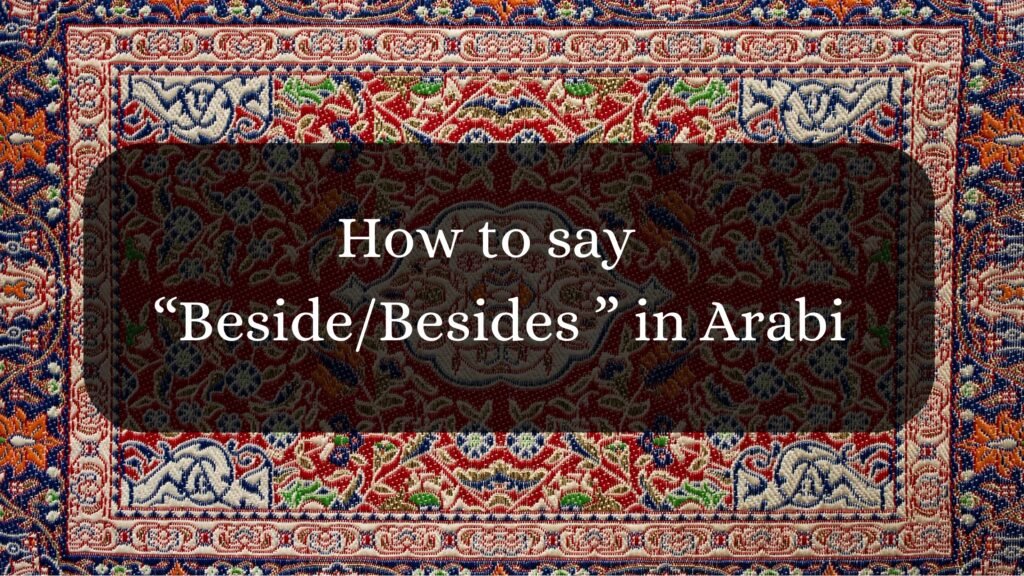
Beside / Besides
“Beside” is a preposition that means next to.
“Besides” is a conjunction meaning in addition to, similar to moreover or furthermore. These two words are commonly used at the beginning of a sentence.
In Arabic, “beside” is typically translated as:
• بِجَانِب
• إِلَى جَانِب
• جِوَار
• فَوْق ذَلِكَ
• وَفْق ذَلِكَ
• فِيمَا عَدَا ذَلِكَ
• غَيْر ذَلِكَ
• بِالإِضَافَةِ إِلَى
• فَضْلًا عَنْ
• عِلَاوَةً عَلَى
• أَيْضًا
Examples with ḥarakāt:
1. “Why don’t you want to sit beside your brother?”
لِمَاذَا لَا تُرِيدُ أَنْ تَجْلِسَ إِلَى جِوَارِ أَخِيكَ؟
2. “I don’t enjoy painting. Besides, I was never good at it.”
لَا أَسْتَمْتِعُ بِالرَّسْمِ، وَعِلَاوَةً عَلَى ذَلِكَ، لَمْ أَكُنْ جَيِّدًا فِيهِ.
3. “Who besides Sarah and Magda attended the party?”
مَنْ الَّذِي حَضَرَ الحَفْلَةَ إِلَى جَانِبِ سَارَةَ وَمَاجْدَةَ؟
4. “He gave me a lot of support and many other things besides!”
أَعْطَانِي كَثِيرًا إِلَى جَانِبِ الدَّعْمِ، أَشْيَاءَ أُخْرَى كَثِيرَةً.
or
فَضْلًا عَنْ دَعْمِهِ الكَبِيرِ لِي، فَقَدْ أَعْطَانِي أَشْيَاءَ أُخْرَى كَثِيرَةً.
